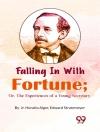In ‘Crime and Punishment’, Fyodor Dostoyevsky intricately weaves a psychological narrative that delves into the mind of Raskolnikov, an impoverished former student who theorizes that extraordinary individuals can transcend moral boundaries. Written in a realist style, the novel encapsulates the moral dilemmas and existential angst of 19th-century Russia, reflecting the societal tensions of post-Emancipation. Dostoyevsky employs rich philosophical dialogue and a fragmented narrative structure to mirror Raskolnikov’s turbulent psyche, ultimately exploring themes of guilt, redemption, and the quest for meaning in a chaotic world. Dostoyevsky, a figure shaped by personal hardship, incarceration, and a deep engagement with the socio-political landscape of Russia, draws on his own experiences with suffering and existential dread in this seminal work. His encounters with radical thought and his explorations of faith and doubt inform Raskolnikov’s internal battles, offering profound insights into the nature of morality and the human condition, underscored by his own tumultuous life. ‘Crime and Punishment’ is essential reading for anyone interested in existential philosophy, the complexities of morality, and the depth of human psychology. Dostoyevsky’s exploration of the dark underbelly of society and the moral struggles of his characters makes this novel a timeless reflection on the consequences of one’s actions, resonating with modern readers seeking to understand the intricacies of guilt and redemption.
Про автора
Fyodor Mikhailovich Dostoyevsky (1821–1881), a towering figure in the world of literature, was a Russian novelist, short story writer, essayist, and journalist. Born in Moscow, Dostoyevsky was introduced to literature at an early age through the works of Russian and European authors. His literary career began in the 1840s, but it was his novel ‘Crime and Punishment’ (1866) that garnered him international acclaim. In this seminal work, Dostoyevsky explores the psychological anguish and moral dilemmas of Rodion Raskolnikov, an impoverished ex-student who believes himself above conventional morality, leading him to commit murder. This probing into the darker corners of the human psyche exemplifies Dostoyevsky’s narrative mastery and philosophical depth. His utilization of polyphonic style and the exploration of existential themes has significantly influenced the modern novel and earned him recognition as a literary genius. Dostoyevsky’s keen observation of social and political issues of his time, alongside his insight into the human condition, echoes through his characters and settings, often inspired by his own experiences in a Siberian prison camp and his struggles with poverty and epilepsy. His other notable works include ‘The Brothers Karamazov’, ‘The Idiot’, and ‘Demons’, each contributing to his reputation as a forefather of existential literature and a profound influence on subsequent writers and thinkers.












